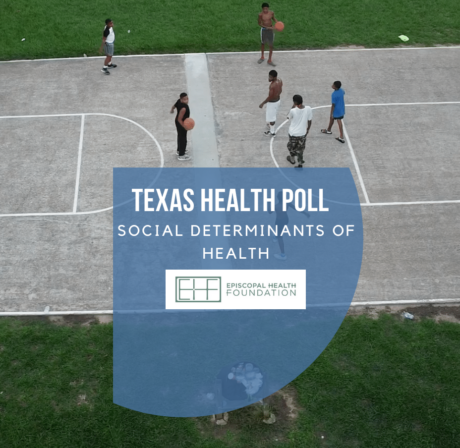Texans say factors like unemployment, poor transportation, living in low-income neighborhoods, and pollution have harmful effects on their health
EHF’s poll finds that 65% Texans say that the state should spend more on non-medical factors that impact health. Researchers found that Black (72%) and Hispanic (75%) Texans, plus young adults under age 30 (76%) are more most likely to say that people would be healthier if the state spent more on non-medical factors.
“The research continues to show that your zip code, not your genetic code, really determines your overall health,” says Dr. Ann Barnes, EHF’s new president and CEO. “These poll numbers show that Texans want state leaders to address the social, economic, and environmental drivers of health. If we don’t act proactively beyond the doctor’s office, then we’re just left responding to poor health outcomes though medical care alone.”
Poll results show Texans also want health insurance providers and doctors to do more to address non-medical drivers of health. Researchers found that more than half (56%) of Texans say health insurance should cover non-medical factors that may affect health and 74% say that it’s essential or very important for doctors to ask patients about non-medical factors.
“If insurance only pays for medical services, then we’re missing out on covering 80% of what determines a person’s health,” Barnes said. “But if doctors and clinics ask about non-medical factors and then health insurance plans pay for things like food prescriptions and healthy home remediations, then we’ll begin to get better health outcomes at much lower costs.”
The poll also shows that Texans have had first-hand experience with a wide range of non-medical factors that may affect their health. More than half (53%) say they’ve been unemployed or had a job that didn’t pay well. Half said they lived in an area with poor public transportation. Almost half (43%) said they’ve faced racial or ethnic discrimination. Researchers found that other non-medical factors impacting health include living in low-income areas without resources, not being able to get affordable housing, and living in an area with air, water, or chemical pollution.
Methodology
SSRS asked about Texans’ Views on Social Determinants of Health as part of the Texas Health Tracking Survey on behalf of Episcopal Health Foundation. SSRS interviewed a representative sample of 1,203 Texas adults (age 18 or older), reached via landline (n=352) and cell phone (n=851; including n= 705 who could not be reaching via landline) random digit dialing (RDD). Interviews were conducted by live professional telephone interviewers in English or Spanish based on the respondent’s language preference.
To schedule an interview, contact Brian Sasser, EHF’s chief communications officer, at bsasser@episcopalhealth.org or 832-795-9404 cell.
